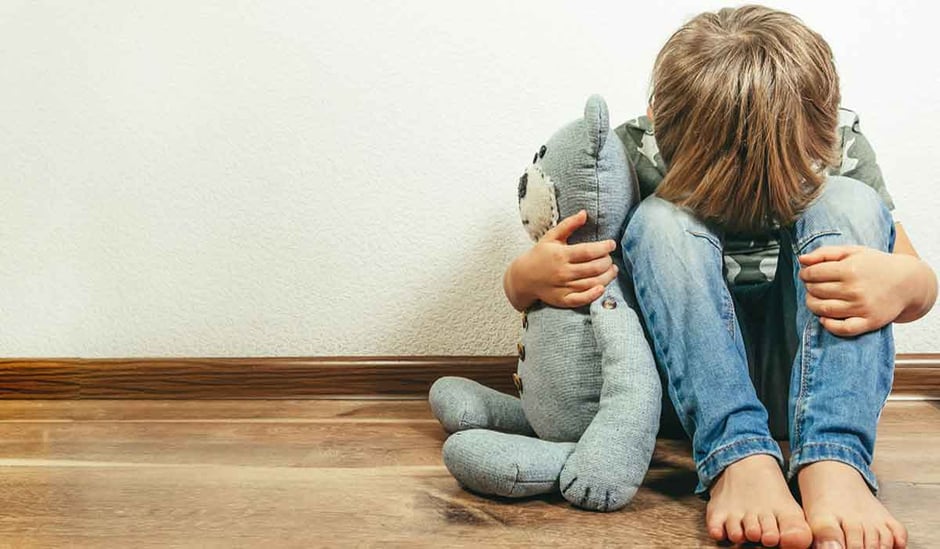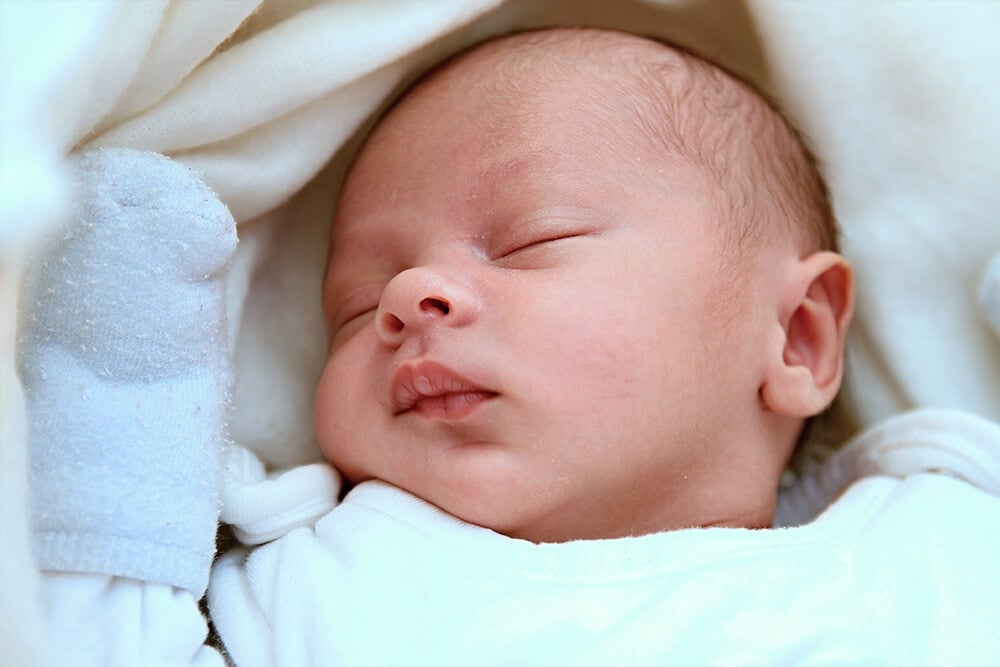Like adults, many children experience anxiety. Unlike adults, symptoms of anxiety in children can be displayed as anger and irritability, in addition to fear and worry. Understanding the symptoms of anxiety in children can make all the difference in helping your child.

According to the CDC, children can start experiencing symptoms of anxiety as early as 8 months. Anxiety in children this young can be displayed as distress when separated from parents or close family members. As children age, additional symptoms of anxiety can present in the following the ways:
- Being uptight and overly tense
- Seeking reassurance frequently
- Extreme worry
- Avoiding situations
- Changes in appetite
- Restlessness
- Anger, aggression, irritability
- Physical symptoms including a fast heart rate, quick breathing, shaking, dizziness, and sweating
This is a short summary of symptoms in comparison to the list of all symptoms children may experience when suffering with anxiety. For more information on anxiety, symptoms, and ways to treat anxiety and depression -- visit the CDC website.
Types of anxiety
When you think of anxiety, the thought of general worry and concern may be what you picture. However, there are different types of anxiety, especially in children, that all have unique symptoms.
The different types of anxiety in children include separation, phobia, and social anxiety in addition to general anxiousness.
Symptoms of separation anxiety
- Intense and constant thoughts and fears about the well-being and safety of parents and family members
- Extreme worries about being away from home
- Refusing to go out and about, including going to school and events
- Clingy
- Panic-induced tantrums when leaving the home
- Issues with sleeping or nightmares
Symptoms of phobia anxiety
- Extreme fear of objects or situations (dogs, spiders, needles)
- Fear-induced distress that interferes with activities
Symptoms of social anxiety
- Fear of meeting new people or talking to people
- Avoiding social situations
- Limited friends outside of close relatives or close family-friends
Anxiety can be caused from biological, family, and environmental factors. Anyone can be affected from anxiety, even if there is no family history of anxiety. Severe anxiety issues can be treated and early treatment is key in preventing difficulties for your child in the future.
Helping a child with anxiety
Noticing the signs and symptoms of anxiety in your child is key in getting them the help they need quickly. The best thing you can do is talk to your pediatrician or primary care provider. They can give you the best advice and develop a personalized treatment plan for treating anxiety. Once you have established a plan of action with your child's provider, there are additional things you can do at home to help ease anxiety in your child.
- Don't avoid their fears. By avoiding your child's fears, you're reinforcing the anxiety. Help your child by showing them they can overcome what they fear by doing activities with them in the situations that they feel anxious.
- Offer comfort. It's important to acknowledge what your child fears, but also to comfort them instead of reinforce them. Understanding where they are coming from can help you to better understand how to help.
- Teach them toleration. Things can be scary as a child, so it's important to teach young children that while their feelings are valid, they can work through their fears and anxieties to a point where they can tolerate the things that once bothered them.
Finding care at Logansport Memorial Hospital
Our team of providers in the LMPN Pediatrics Office have your child's health and wellness top of mind. As your child grows, so will their health needs. Our pediatric services include, but are not limited to:
- Newborn care
- Adolescent medicine
- Preventative health screenings and immunizations
- Treatments for asthma and allergies
- Lab and X-ray services
- Mental health evaluation and treatment
To make an appointment with one of our providers, call (574) 753-4151.



